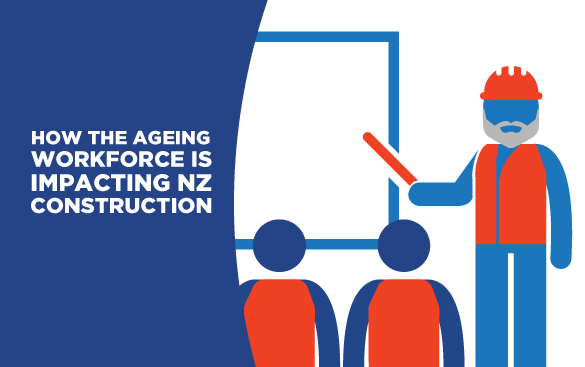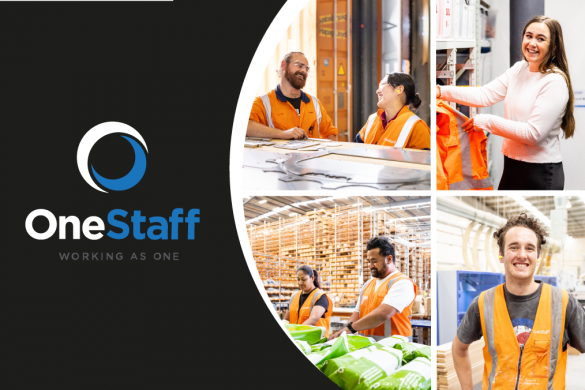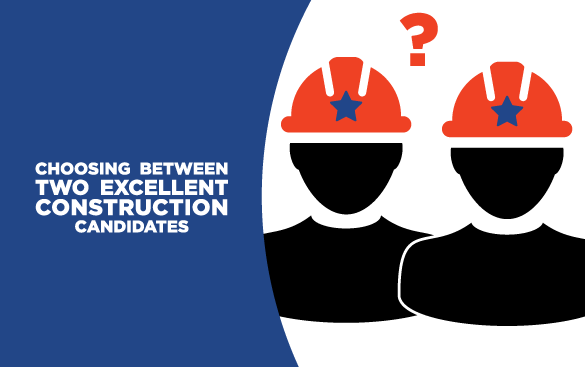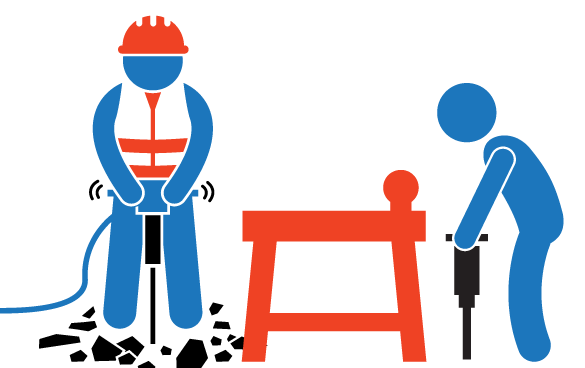Compared to the rest of the world, New Zealand’s workforce is ageing rapidly. In fact, within 20 years more than a quarter of our workers will be reaching retirement age whilst fewer young people are entering the Construction, Infrastructure, and Manufacturing industries. To make matters worse, not enough is being done to engage our ageing workers and foster the transfer of crucial skills, despite the fact the country is facing a national skills shortage, but what can New Zealand employers do?
What’s Driving NZ’s Ageing Workforce?
New Zealand’s ageing workforce is being driven by a large generation of baby boomers steadily reaching retirement age, with some working beyond, and fewer young people entering the workforce. As a result, it is predicted that our workforce will stop expanding by 2030. According to Careers New Zealand, the ageing workforce is currently affecting various roles in the Construction, Infrastructure and Manufacturing industries, causing labour shortages in Labourer, Crane Operator, Plant Operator, Surveyor and Engineer roles. At the same time, less than 7% of school leavers are choosing to enter trade apprenticeships, which means there is currently a lack of apprentices and workers training to become Electricians, Plumbers and Plasterers. If nothing is done to adjust the course we’re heading on, more roles will eventually be added to these lists.
What Can NZ Employers Do?
This crisis is a deep-rooted problem in our national workforce and there is no quick and simple solution, but there is still plenty you can do as an employer to prevent this issue from becoming worse in the years to come. Getting the most out of your experienced employees is the key to steadily remedying this problem and ushering businesses into the future. These are the people who have the skills and experience needed to train and develop younger workers. However, despite this, a survey conducted by the Commission for Financial Capability last year found that a staggering 83% of NZ businesses do not currently have policies or strategies in place for workers aged over 50.
Engage & Retain Mature Workers
The first step is to shift focus to create a positive work environment to engage and retain experienced employees, so that their skills and experiences can be effectively utilised within the business. In practice, this means making the lives of these skilled workers easier through reducing working hours or making hours more flexible, and changing shift patterns. The nature of some Construction and Manufacturing roles require physically fit individuals. Whilst developments in technology and Health & Safety practices are making it safer for all employees to work longer, it is a good idea for employers to reconsider job responsibilities to ensure a safe and engaging work environment is maintained.
Providing mature workers with meaningful opportunities to move into training and management positions can help to further engage and retain experienced employees, whilst ensuring the right pathways are in place to foster skill and knowledge transfer across your business.
Provide Career Pathways for Young People
The second step is to help encourage more young workers to start careers in the Construction, Infrastructure, and Manufacturing industries and actively develop their skills and experiences. There are many ways an employer can do this but a great place to start is to invest and support New Zealand apprenticeships in conjunction with the Tertiary Education Commission. These apprenticeships allow young people to gain hands-on work experience, acquire crucial contacts within the industry, and often provide your business the first chance to secure the next wave of exceptional young talent.
Also, check out #GotaTradeWeek which is held in August every year. This is a national campaign to raise awareness of on-the-job training and help young people create careers for themselves in New Zealand’s Trades and Services industries. Head over to Got a Trade? Got it Made!’s website to find out how you can get involved.
Consider International Talent
Of course, you can also engage overseas candidates to close gaps and transfer skills and knowledge to younger employees. International workers can often bring a wealth of experience to the table, especially if they’re coming from a country with a significantly larger construction market. While engaging international professionals can provide its own unique challenges, such as ensuring they first have the right to work in New Zealand, they can still be an effective solution. If you’re considering hiring an international worker, check out this guide on everything you need to know.
Summary
As the number of New Zealanders staying in work for longer continues to rise, it’s crucial that businesses avoid ignoring the country’s ageing workforce to prevent this trend causing further damage to our industries. We hope that the above advice has been useful to you, but if you would like to further discuss this trend, or would like to find out how OneStaff can help prepare your business for the future, get in touch with us today.










